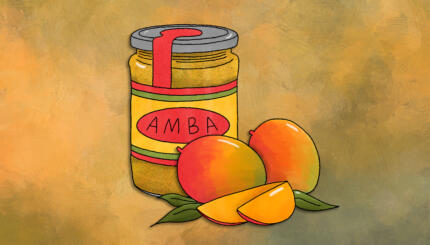Untie the cords of the yoke, let the oppressed go free, break off every yoke … if you banish the yoke from your midst … then shall your light shine in darkness, and your gloom shall be like noonday. The Lord will guide you always. (Isaiah 58: 6-10)
For generations, black slaves in the Americas found inspiration and hope in the biblical story of the exodus. Surely during the first century of American independence, there were Jews – white and free all of them – whose thoughts dwelt on the slaves toiling in southern plantations as they sat down every year to the Passover Seder and recounted the evils of our enslavement in Egypt. Some of them certainly felt stirrings of guilt in their hearts as they recited, “This year – slaves, next year – free people!” Perhaps there were those who were inspired by the Seder to redouble their efforts to abolish the evil scourge of slavery.
What about us in the 21st century? Is there any practical application today to the message of freedom from bondage that arises from the Seder ritual? Are there any slaves left that we must take upon ourselves to free?
The enslavement of the Israelites in Egypt did not begin suddenly, out of the blue. It began with understandable Egyptian fear of the growing power of our foreigner forefathers.
“A new king arose over Egypt … He said to his people, ‘The Israelites are much too numerous for us. Let us deal shrewdly with them … Otherwise in the event of war they may join our enemies in fighting against us’.”
At first, the Egyptians only put the Israelites to work on limited construction projects, building the likes of “Pithom and Raamses. But the more they were oppressed, the more they increased and spread out so that the [Egyptians] came to dread the Israelites.” The solution became part of the problem. The measures taken by the authorities only served to galvanize the resistance. Enmity and fear grew. The Egyptians felt they had no choice but to gradually tighten the screws.
The story is different, but not that different, for us today.
It began very differently, but there are some striking similarities.
We found ourselves in a life and death military conflict with the Arab allies of the Palestinians. By the skin of our teeth we emerged victoriously, but with many of them – too many of them – within our midst. Legitimate fear that they would rise up against us led us to clamp down. The situation, however, only got worse. The Torah knew very well what it was talking about. “But the more they were oppressed, the more they increased and spread out so that the [Israelis] came to dread the [Palestinians].” Our dread of them and of what might befall us at their hands slowly gave birth to a system – and I write this with tears in my eyes and raging indignation in my heart – that bears not a little similarity to that engineered by Pharaoh so many years ago. Before most of us fully took stock of what was happening, very slowly, it was too late. We had become oppressors.
It is easy not to see. It is natural not to see. I imagine that many rank and file Egyptians did not see. For 33 years I myself did not see. Especially when we feel threatened, we think only of our own safety. When we experience danger, it is not difficult to justify, to ignore, and to minimize – all at the same time – what we do to the other. It is hard to see our own misdeeds.
I wish this was not true. But I have seen it with my own eyes and have experienced it from up close again and again for the last 5 years, as I have gotten to know my Palestinian neighbors and have intertwined my life with theirs.
Palestinians are not slaves. But they are also not free. They may be just as close to being slaves as they are to being free men and women. At least in Area C of the Palestinian Territories but not only there, if they are quasi-slaves – and they most certainly are – we are quasi-masters.
They have no access to citizenship and are deprived of the security that citizenship provides. They are thereby prevented from developing the skills and political responsibility that come with the exercise of citizenship.
A different legal system governs the lives of Palestinians than the one that governs our lives, their Israeli peers and neighbors. The law is clearly and explicitly engineered to fit the needs of the rulers – we Israelis.
Palestinian economic activity is severely limited by Israeli regulations. Both public and private building are restricted; only 2% of Palestinian requests for building permits are granted by Israel, even on privately owned Palestinian land. The vast majority of Palestinians are forced to build illegally, and then to live with the threat of demolition constantly hanging over their heads. On both the macro and the micro level, Palestinian livelihoods depend on Israel. Israel, in a myriad of ways, suppresses the capacity of the Palestinian economy. As a result, one of the few avenues of making a decent living available to Palestinians is construction or menial work in Israel or in the settlements, work that advances the welfare of Israel more than it does the welfare of the Palestinians, and at the same time increases their sense of humiliation and expropriation. On top of it all, they very often have to pass through demeaning and dehumanizing checkpoints to get to work.
Palestinians are subject to arrest by the Israeli military without the orders of a judge or a court. Not infrequently, Palestinian prisoners are blindfolded and abused, even those as young as 12 and 14. One-third or more of the entire male Palestinian population have been incarcerated in Israeli jails, only a small percentage of whom have been convicted of violent crimes. The whole population lives in fear of the arbitrary power of the Israeli army.
Freedom of movement for Palestinians is severely restricted. They cannot enter Israel proper without a permit from the military, although in many cases Israel proper is where their parents or grandparents were born. And even with a permit, they are forbidden from driving in Israel. Within the West Bank, movement is restricted by the designation of certain roads as off-limits to Palestinians and by ad hoc checkpoints on those roads open to Palestinians. I have never met even one Palestinian who does not have a story of humiliation at one of the permanent or temporary checkpoints.
The West Bank is land-locked. Israel has prevented the construction of an airport while the Israeli air and sea ports are off limits to Palestinians. Most Palestinians live with a wide-reaching feeling of imprisonment.
We Israelis just went to the polls. Our votes determine the fate of all the people living under our control from the River to the Sea. About 30% of those people – Palestinians – were ineligible to vote.
In short, the majority of Palestinians live under conditions in which their freedom, honor, physical integrity, capacity to work, acquire property, and plan for the future are subject to the will and power of their Israeli masters. They live with a permanent sense of dishonor and are forced to conduct their lives without predictability, continuity or security. This isn’t exactly slavery. But it is too similar to it to leave me with any sense of comfort or moral complacency.
The domination that Israel – my country – exercises over the Palestinians has created a matrix of control very similar to the conditions of slavery. What am I going to say to my granddaughter as we sit around the seder table reciting “This year – slaves. Next year – free people!” What am I going to say to myself? More importantly, what am I going to do? What are we going to do?
———-
Note – some of the facts and insights in this blog post were taken from here.



